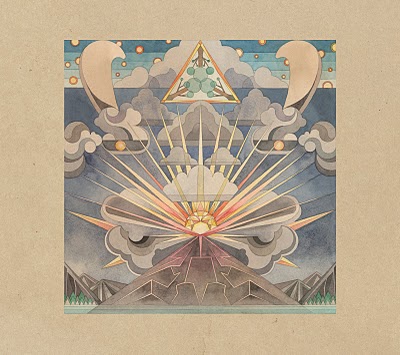Videos by American Songwriter
Junip
Fields
(Mute)
[Rating: 4 stars]
The cover art for Junip’s debut full-length album, Fields, by Swedish artist Fredrik Söderberg, is a mix of eastern psychedelia and Cubist patterns. Whereas the cover art for José González’s solo albums have often depicted sparse line drawings in space – a sort of Minimalism, if you will – Junip, if you wanted to compare it to a school of art, would easily fall in with the twisted geometry of Cubism.
In Junip – a three-piece band the Swedish-Argentinean songwriter formed a decade ago with Swedes Elias Araya and Tobias Winterkorn – González is the nucleus around which his band members build walls and scaffolding to house his airy creations. On Field’s opening track, “In Every Direction,” González could be describing his role in the band when he sings, “You’re the center and you’re always free/ In every direction.”
While that line has a metaphysical aloofness, Fields also finds Gonzalez pondering existence in more obvious terms, such as in “Howl:” “If you weren’t told about the Trinity/ Would you still know what in the world created all this.” That kind of thinking fits the music, in which facts and questions seem to get all mangled up.
The songs on Fields have the same tempo, and often timbre, of González’s solo work. His two solo LPs and three EPs have been sonically closer to ‘60s English folk than German electronic music – but a hint of Krautrock has always been there. Two songs from Fields – “Don’t Let It Pass” and “Without You” – employ a synth lead reminiscent of Aphex Twin or Boards of Canada.
Overall, the music, a mix of González’s tightly composed song structures and the sonic explorations of the rest of the band, creates a spellbinding and trance-like synthesis. González has talked about Junip being a reaction to the Gothenburg hardcore scene that he, Araya and Winterkorn came out of in the ‘90s. But the pathos behind Junip feels similar to the hardcore bands they eschewed. It’s got the same underlying intensity and drive. Ultimately, methodical improvisation seems to be the glue holding the band together. And where the sparse arrangements of González’s solo recordings may have turned off listeners disinclined towards twee, Fields unfolds in a whole new light.










Leave a Reply
Only members can comment. Become a member. Already a member? Log in.